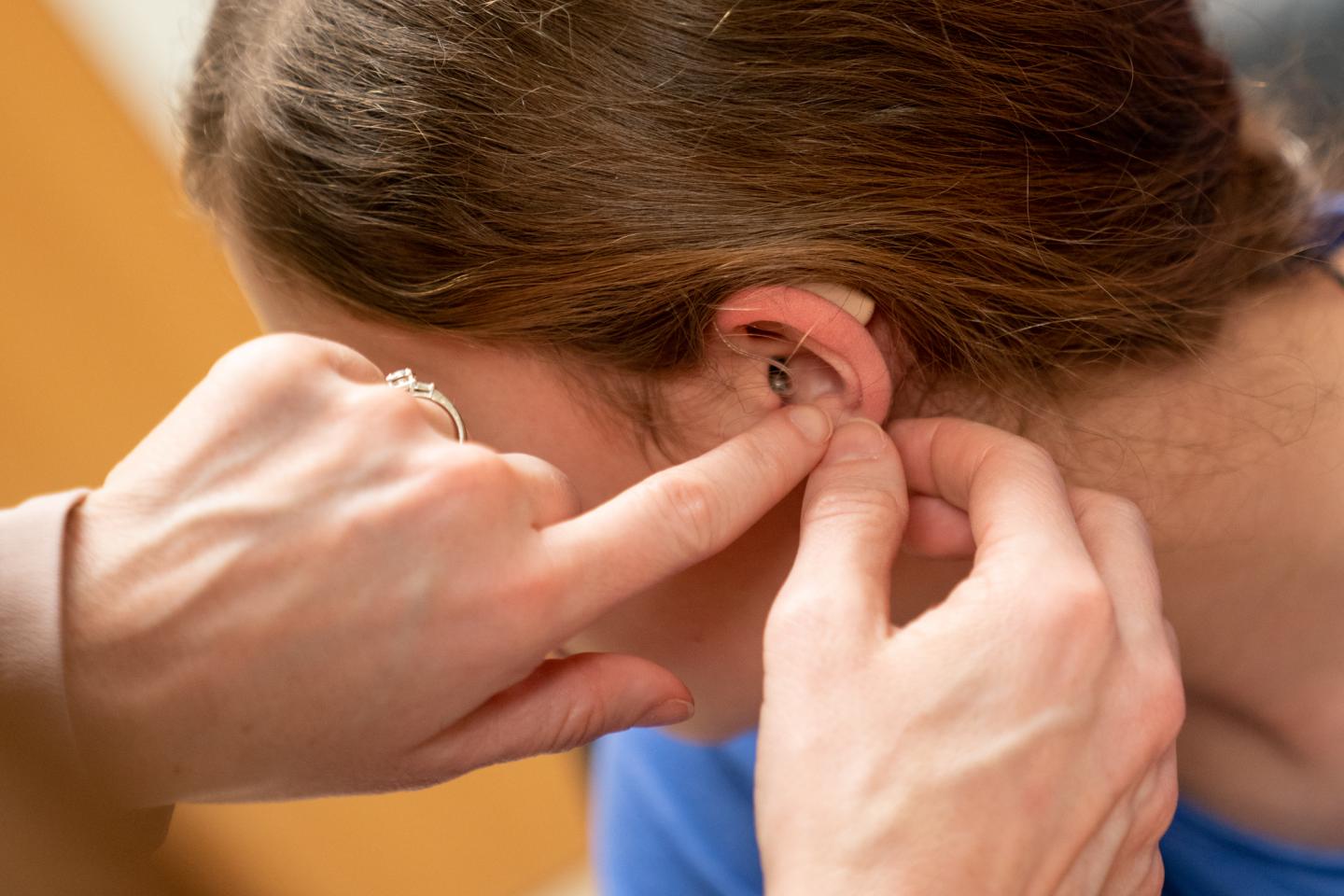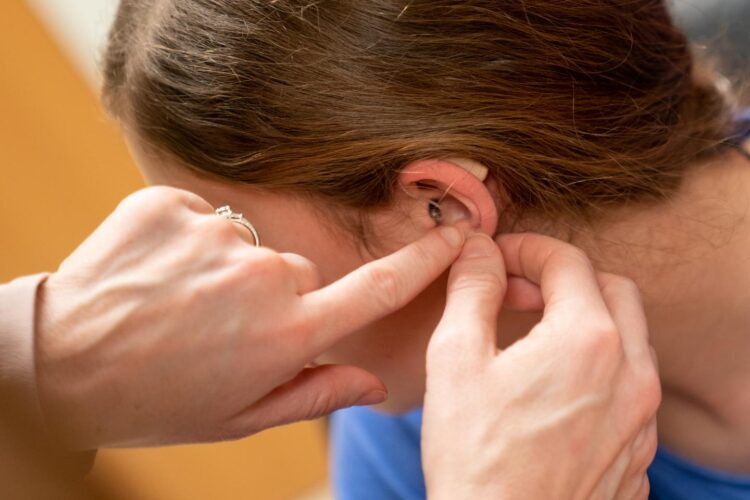Research shows that severe hearing loss in childhood cancer survivors is associated with neurocognitive deficits independent of type of therapy

Credit: St. Jude Children’s Research Hospital
Scientists at St. Jude Children’s Research Hospital are studying how hearing loss can affect the neurocognitive abilities of childhood cancer survivors. Findings show that survivors with severe hearing loss are at a significant increased risk for neurocognitive deficits, independent of what type of therapy they receive. The work appears as an advance online publication today in JAMA Oncology.
“There has been a lot of research on how children who are born deaf can be affected academically and psychosocially, but far less for kids who acquire hearing loss at some point during their childhood,” said corresponding author Johnnie Bass, Ph.D., of St. Jude Rehabilitation Services. “Our goal was to report on the prevalence, severity and risk of hearing loss in a large cohort of cancer survivors to assess the impact of hearing impairment on neurocognitive function.”
The researchers evaluated 1,520 childhood cancer survivors and found that more than one-third had severe hearing loss. Those survivors with severe hearing loss were found to be at increased risk for neurocognitive deficits. This effect was independent of having been exposed to neurotoxic therapy, when compared to survivors with normal hearing or mild hearing loss.
This study is the first to objectively measure hearing and neurocognitive function in a large cohort of long-term survivors of childhood cancer stratified by treatment exposures.
“Even patients not exposed to neurotoxic therapies who develop mild hearing deficits can have problems with their neurocognitive skills,” said senior author Kevin Krull, Ph.D., of St. Jude Epidemiology and Cancer Control. “This makes it important to identify these patients early and suggest interventions to help improve their hearing and thus their neurocognitive outcomes.”
Hearing aids are often recommended to assist with treatment-related hearing loss. The researchers found that of 330 survivors with severe hearing loss in the study for whom a hearing aid had been previously recommended, only 23% were consistently using the devices. Research in individuals who are born with hearing loss, as well as in the elderly with hearing loss, suggests that hearing aids can improve neurocognitive outcomes. More research is needed to determine if this is the case for childhood cancer survivors and to better understand barriers that prevent hearing aid use.
The work relied on hearing assessments gathered through the St. Jude Lifetime Cohort study (St. Jude LIFE). St. Jude LIFE brings long-term childhood cancer survivors back to the hospital for regular health screenings throughout their adult lives. Findings from the study help childhood cancer survivors learn more about their health needs, while providing novel insights into the late effects of childhood cancer treatment.
###
The study’s other authors include Wei Liu, Pia Banerjee, Tara Brinkman, Daniel Mulrooney, Amar Gajjar, Alberto Pappo, Thomas Merchant, Gregory Armstrong, Deokumar Srivastava, Leslie Robison and Melissa Hudson, all of St. Jude.
The research was funded in part by grants from the National Institutes of Health (CA195547 and CA21765) and ALSAC, the fundraising and awareness organization of St. Jude.
St. Jude Children’s Research Hospital
St. Jude Children’s Research Hospital is leading the way the world understands, treats and cures childhood cancer and other life-threatening diseases. It is the only National Cancer Institute-designated Comprehensive Cancer Center devoted solely to children. Treatments developed at St. Jude have helped push the overall childhood cancer survival rate from 20% to 80% since the hospital opened more than 50 years ago. St. Jude freely shares the breakthroughs it makes, and every child saved at St. Jude means doctors and scientists worldwide can use that knowledge to save thousands more children. Families never receive a bill from St. Jude for treatment, travel, housing and food — because all a family should worry about is helping their child live. To learn more, visit stjude.org or follow St. Jude on social media at @stjuderesearch.
Media Contact
Kathryn Hobgood
[email protected]





